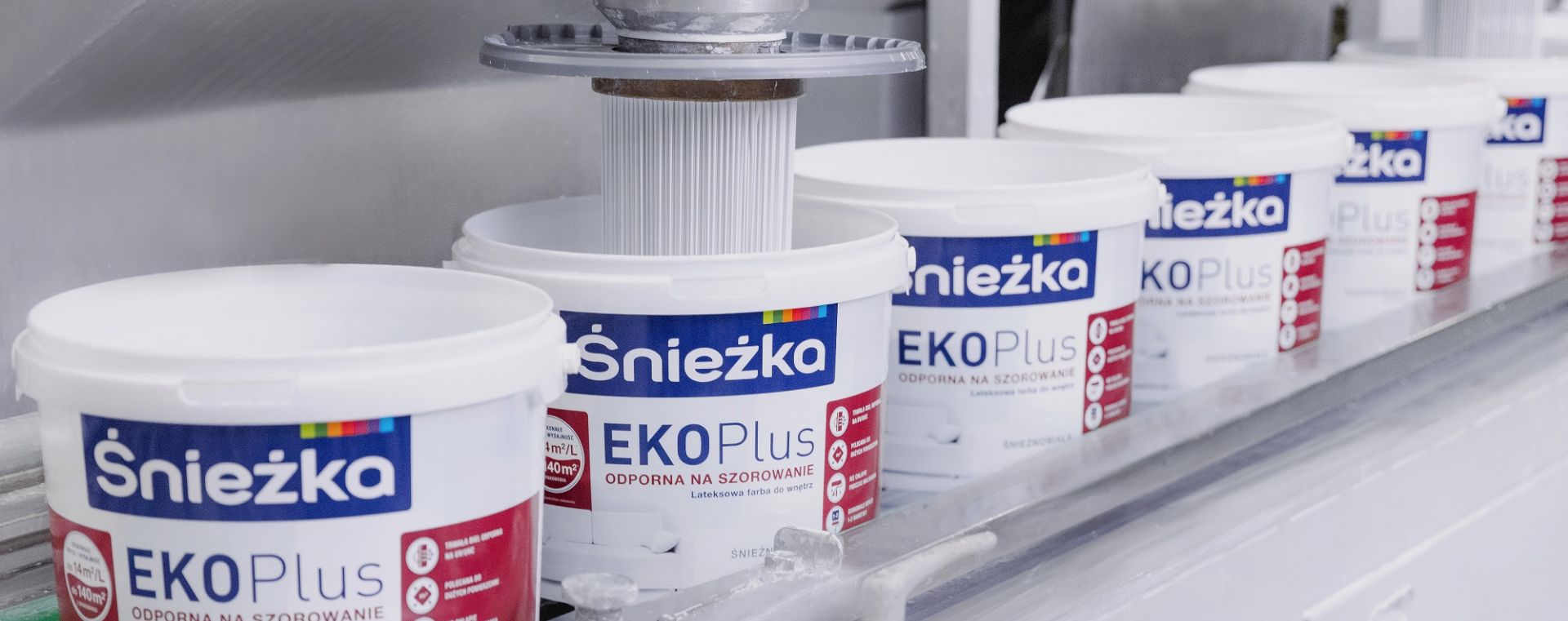
The time of transformation and challenges. Śnieżka summed up 2021
In 2021, the Śnieżka Group focused its efforts on transformation and investments - implementing a new operating model, improving logistics processes and digitization. At the same time, it struggled with a number of market challenges, which influenced its performance. In view of the outbreak of the armed conflict in Ukraine, the management board of Śnieżka focuses on strengthening its position in key markets and on cutting expenses.
One of the essential elements of the transformation in Śnieżka is the change of the operating model, based on the functioning of competence centres for the core areas of the business activity. This role is played by two Polish companies of the Group: FFiL Śnieżka SA, which, apart from setting the operating strategy, is the Group’s leader in research and development, production and supply chain management (purchasing, distribution, storage and logistics), and Śnieżka Trade of Colours, which is responsible for sales, marketing, market research and pricing. The implementation of the new model commenced at the beginning of last year and in most companies it has been smoothly.
The second important event is the launch of the new Logistics Centre in Zawada according to plan. The large-scale facility operating since the beginning of this year, owing to its very good location near the A4 motorway, large warehouse space and gradually launched advanced automation, will significantly boost Śnieżka’s efficiency in the area of product logistics and will allow for more efficient management of manufacturing processes.
In 2021, there was a follow-up of the digital transformation project called Change IT. Implementation of tools in the area of human resource management was completed last year within the project in question. The Śnieżka digitization project has been carried out for three years and, for the most part, has already been completed.
Performance under pressure from external factors
In 2021, the Śnieżka Group generated sales revenues of PLN 794.9 million, i.e. 3.2% lower than in the previous year. At the same time, the net profit fell by around quarter, to PLN 64.3 million (profit attributable to the shareholders of the parent company amounted to PLN 59.7 million). The performance, however, should be analysed in relation to the record-breaking, albeit one-off, demand recorded in spring 2020.
Considering the challenges faced by manufacturers of paints and varnishes, the management board assesses the performance positively.
– One of the most serious challenges in 2021 turned out to be unprecedented in our history, sharp increase of raw material prices used in manufacture and packaging. It exerted a considerable pressure on costs borne by Śnieżka. Concurrently, there was a noticeable return of consumers to the customs from before the pandemic, which was reflected in lower demand for decorative products in our most important markets, i.e. in Poland and Hungary– commented Piotr Mikrut, President of the Management Board of FFiL Śnieżka SA.
Despite the unfavourable circumstances, the Śnieżka Group achieved very good sales results in Poland. Revenues generated in the key market, accounting for almost two-thirds of total revenues, amounted to PLN 527.1 million. This is slightly more than in the record-breaking year of 2020.
– We are satisfied with the increase in sales and keeping the market shares in Poland, on our domestic market. This is the result of several factors, including the continuing product premiumization trend (which contributed to higher sales of Magnat paint) our high marketing and sales activity and an appropriately shaped pricing policy – adds the president of Śnieżka.
Among the core markets, the Group recorded lower sales in Hungary – mainly due to the necessary significant changes in the sales policy and the reorganization of the sales force. In the opinion of the management board of Śnieżka, the changes introduced in the Hungarian company have built solid ground for more active fight for market shares in the future.
Safety is currently crucial
So far, one of the biggest questions asked by manufacturers of paints and varnishes has been how the long-term effects of the COVID-19 pandemic will affect the macroeconomic environment and consumer sentiment. In addition to threats to customers’ purchase plans, and thus the demand for decorative products, there has been, inter alia, still rising inflation. Recently, a new uncertainty factor has appeared on the horizon – the armed conflict in Ukraine.
ŚŚnieżka has one of its six manufacturing facilities in Yavoriv (approx. 20 km from the Polish border) in Ukraine, and the local market in 2021 accounted for 10.1% of the Group’s total sales revenues. As a consequence of martial law introduced on February 25 this year, the operating activities of Śnieżka-Ukraina have been temporarily suspended. Currently, however, the assets of the Ukrainian company are not at risk.
Despite the lack of premises indicating the loss of the company’s ability to continue its operations in Ukraine, the outbreak of the conflict resulted in a revision of Śnieżka’s earlier plans – also in terms of the pace and scale of subsequent development investments.
– We will soon complete a five-year investment cycle. During this time, we have developed organically, but we have also successfully completed acquisitions. It was particularly vital to take over Poli-Farbe, the Hungarian market leader. Such a significant diversification has increased our safety by leaps and bounds. The Śnieżka Group has additional investments and is developing in a sustainable manner. However, the war behind our eastern border has caused that we must be ready for all scenarios. Therefore, in the near future we are going to focus on further strengthening of the market position in Poland and Hungary, which together account for approx. 85% of our revenues and provide us with stability and a solid foundation for development– adds Piotr Mikrut.
The Group assumes that in 2022 the capital expenditure is to amount to PLN 55 million, compared to PLN 121.2 million last year. In the following years, further gradual reduction of the Group’s expenses on tangible investments is planned – and their target return to the depreciation level.
